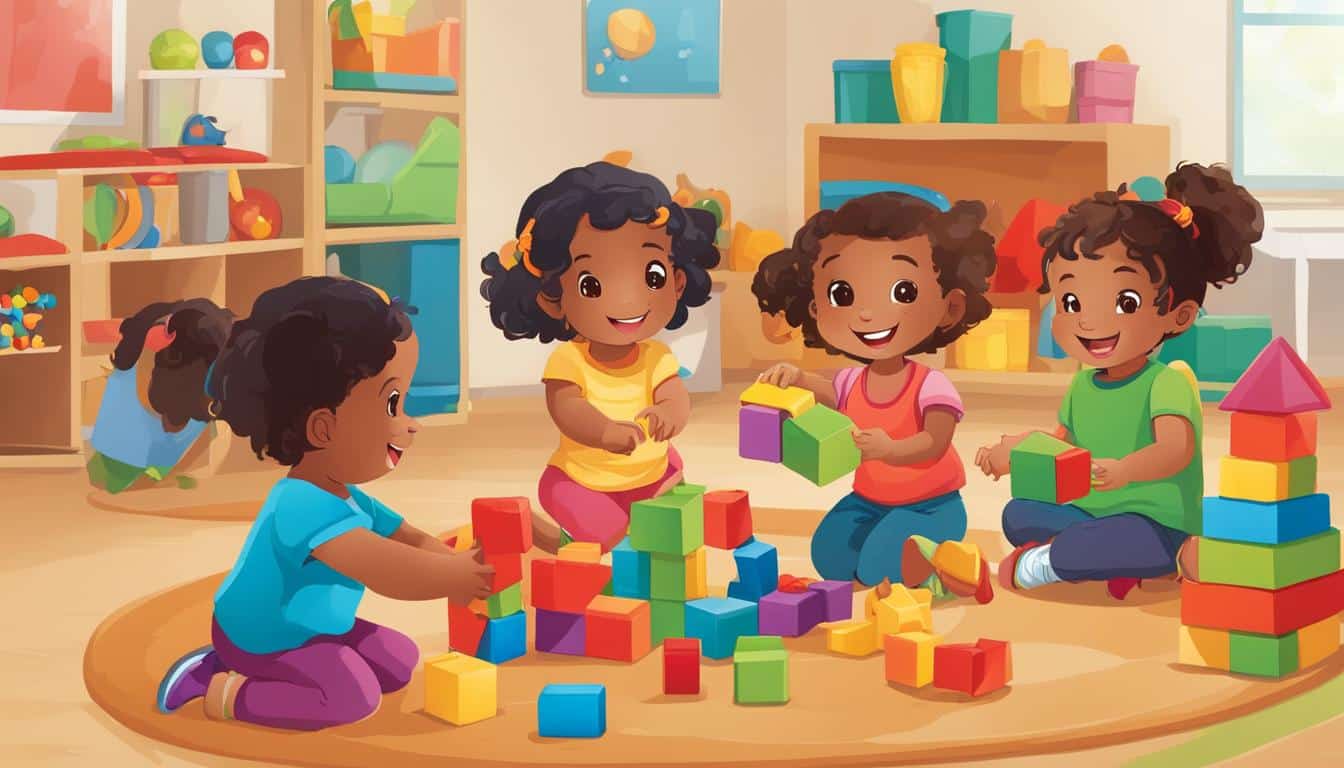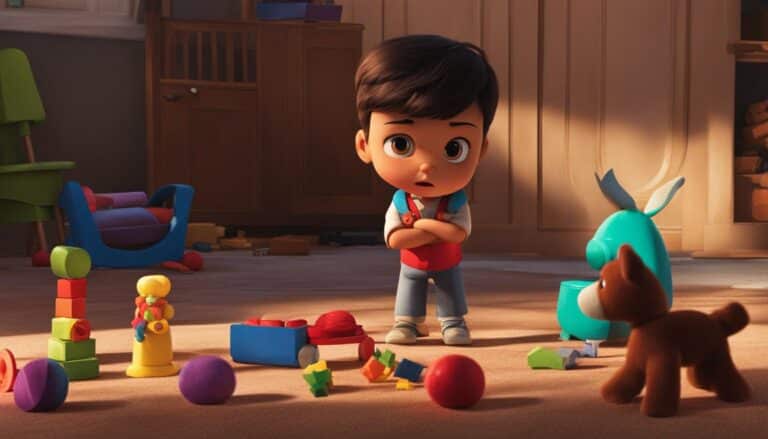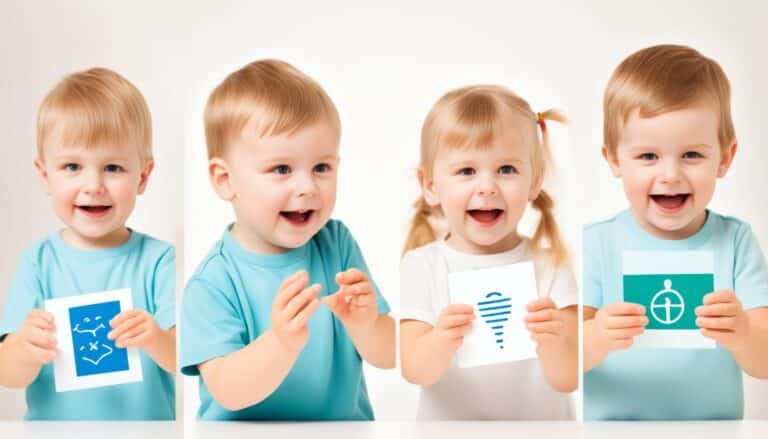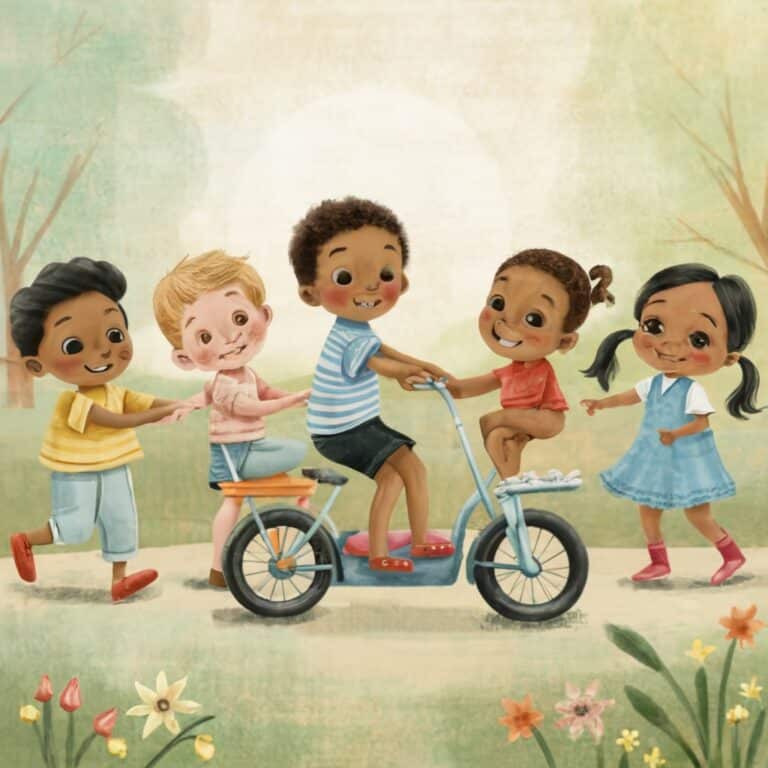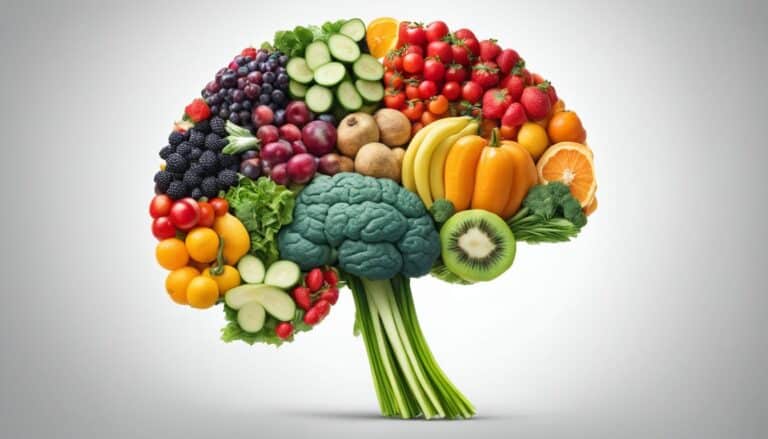Key Developmental Milestones for Preschoolers
As a parent or caregiver, it’s essential to understand the various developmental milestones that preschoolers experience as they grow. By being aware of these milestones, you can better support and encourage their healthy development. In this section, we will explore the important skills and behaviors that preschoolers typically develop, including physical, cognitive, social, emotional, and language milestones.
Key Takeaways:
- Preschoolers experience significant growth and development across multiple domains.
- It’s essential to monitor their physical, cognitive, social, emotional, and language development to ensure they reach important milestones.
- Providing appropriate stimulation and support can help preschoolers thrive and achieve their full potential.
- Some of the key milestones to look out for in preschoolers include language development, problem-solving skills, empathy, and self-regulation.
- By understanding and supporting these milestones, you can help your preschooler grow and develop into a healthy, happy, and well-rounded individual.
Physical Milestones
Physical development is a significant area of growth during the preschool years. Children begin to develop fine motor skills, which involve using small muscles in the hands and fingers, and gross motor skills, which involve using larger muscles in the arms, legs, and trunk. Fine motor skills are essential for activities such as writing, drawing, and cutting, while gross motor skills are crucial for running, jumping, and climbing.
Between the ages of three and five, preschoolers typically achieve some significant physical milestones. For example, they can:
- Manipulate small objects with increasing precision, such as stringing beads or using scissors
- Draw simple figures, shapes, and letters
- Bounce, catch, and throw a ball with greater control
- Run, jump, and skip with more confidence and coordination
As preschoolers’ physical ability grows, it is essential to provide opportunities for them to develop these skills. Simple activities like drawing and playing with blocks can enhance fine motor skills, while activities like tag and ball games can help with gross motor skills.
Cognitive Milestones
As preschoolers continue to grow and develop, their cognitive abilities expand. It is during this time that children develop crucial cognitive skills that set the foundation for future learning and problem-solving.
One of the significant cognitive milestones for preschoolers is problem-solving abilities. At this age, children can engage in simple problem-solving activities, figuring out solutions for daily tasks such as getting dressed or putting away toys.
Another key cognitive milestone is memory development. Preschoolers can remember and recall experiences and events for longer periods, which is crucial for developing long-term memory skills.
Attention span is also an essential cognitive milestone during this stage. Preschoolers can focus on activities for more extended periods and can switch their attention from one task to another.
Language skills also continue to develop during the preschool years. Preschoolers can use more complex sentences, ask more questions, and understand basic grammar rules.
“Cognitive development is the foundation of a child’s lifelong learning journey.”
To ensure preschoolers develop cognitively as expected, it is crucial for parents and caregivers to engage them in activities that stimulate their minds. Reading together, solving simple puzzles, and engaging in imaginative play can all contribute to cognitive development.
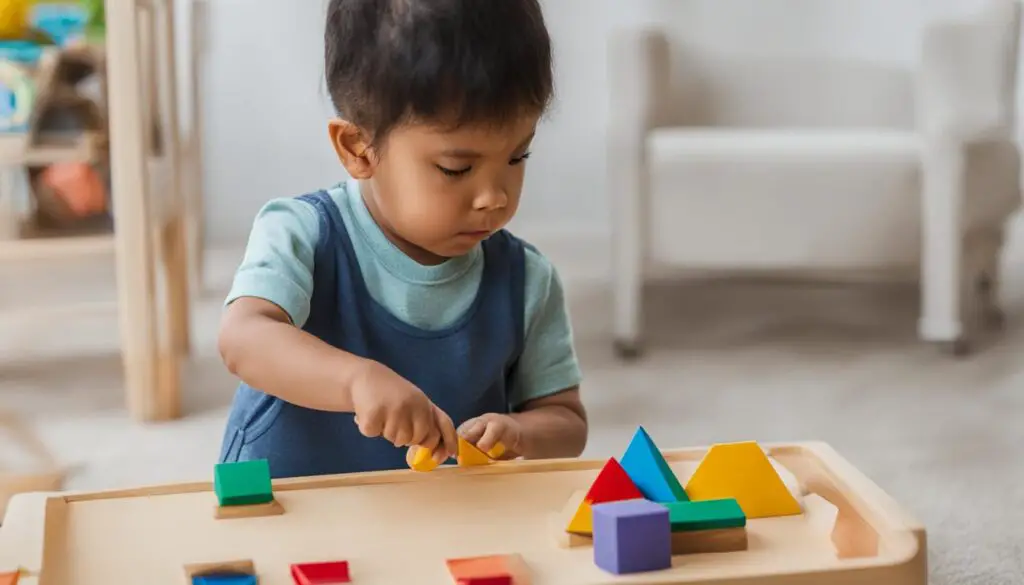
Social and Emotional Milestones
Preschoolers experience significant shifts in their social and emotional health during this stage of development. As they become more aware of their surroundings, children of this age start developing empathy, self-regulation, and friendships that are critical to their social and emotional development.
Empathy development is an essential aspect of children’s social growth. Kids achieve this milestone when they understand other people’s emotions and begin to respond appropriately to them. This period often implies that children can communicate better with others, learning how to be kind and caring towards them.
Additionally, developing self-regulation helps preschoolers manage their emotions and behavior appropriately. When kids understand how they feel, they can start to express themselves better and have better self-esteem.
Finally, forming friendships marks a significant milestone in their social development. Preschoolers learn to understand others better when they form social bonds and start to learn how to compromise, negotiate, and dispute resolution.
Why Social and Emotional Milestones Matter
Developing social and emotional skills is an integral part of your child’s growth into a well-rounded adult. Children that develop good social and emotional skills are often more confident and creative, with increased classroom participation and better school outcomes.
As a parent or caregiver, it’s important to provide children with numerous opportunities to learn social skills by engaging in playdates and providing age-appropriate activities that help with their emotional and social progress.
“The best way to develop social and emotional skills in preschoolers is to expose them to different environments and allow them to interact with other children their age.”
Language and Communication Milestones
During the preschool years, children’s language development goes through massive changes. They become more proficient at communicating their wants, needs, and feelings, and their vocabulary undergoes substantial growth. As a parent, it’s essential to recognize these milestones and provide adequate support and stimulation to help your preschooler develop their language and communication skills.
One of the most significant milestones is vocabulary growth. By age four, children typically know anywhere between 1,600 and 2,500 words. They start to understand more complex grammar rules and can use them to form more complicated sentences.
Another critical aspect of language development is speech clarity. Preschoolers start to produce clear, articulate sounds, and their words become easier to understand. They can also use language to express empathy and form close relationships with others.
Basic grammar rules also develop during the preschool years. Children start to use plurals, possessives, and pronouns. They also begin to understand the past and future tenses of words and use them in context.
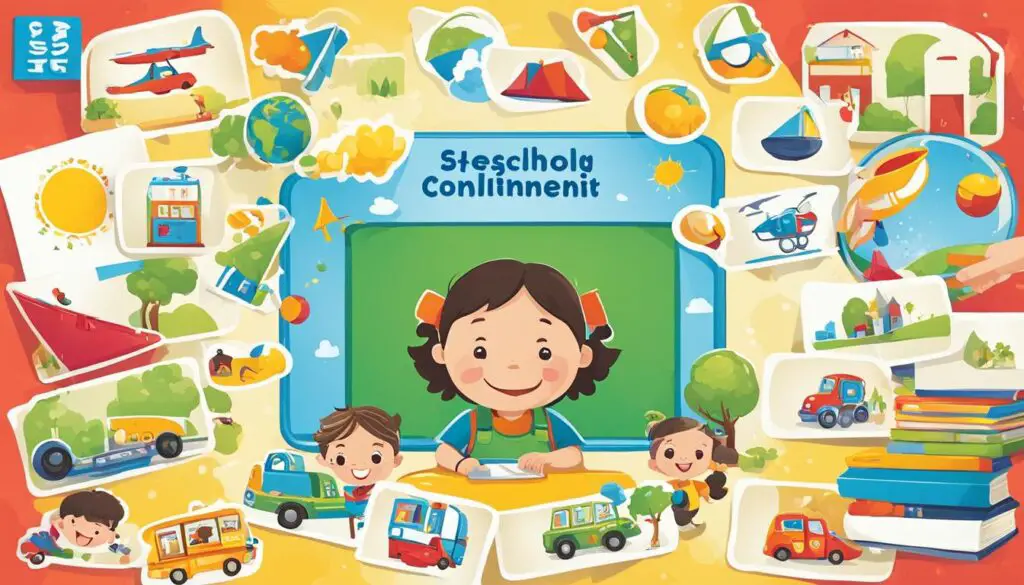
“The greatest success is not only in their speech and communication but also in their ability to convey their wants and needs in a way that is respectful and considerate to those around them.” – Jane Smith, Speech and Language Therapist.
In conclusion, preschoolers’ language and communication skills develop rapidly during their early years. As a parent, it’s crucial to play an active role in fostering their language development by providing opportunities for conversation, reading, and social interaction. By recognizing these milestones and providing appropriate support, you can help your child reach their full potential.
Conclusion
In conclusion, as a journalist and parent myself, I know how important it is to recognize and support the developmental milestones of preschoolers. Monitoring their physical growth, cognitive abilities, social interactions and emotions, as well as their language and communication skills, can help parents and caregivers provide appropriate support and stimulation. By doing so, we can ensure that our preschoolers develop important skills and behaviors that will serve as a foundation for their future success. As a community, let us continue to prioritize the growth and development of our young ones.
FAQ
What are key developmental milestones for preschoolers?
Key developmental milestones for preschoolers include important skills and behaviors that children typically acquire as they grow. These milestones encompass physical, cognitive, social and emotional, as well as language and communication development.
What physical milestones do preschoolers typically achieve?
Preschoolers experience significant physical growth and development. Physical milestones for preschoolers include the development of fine motor skills, such as writing and cutting, and gross motor skills, such as running and jumping.
What cognitive milestones do preschoolers reach?
Cognitive milestones in preschoolers involve problem-solving abilities, memory development, language skills, and the lengthening of their attention span. These milestones contribute to their learning and understanding of the world around them.
What social and emotional milestones do preschoolers typically reach?
During the preschool years, children begin to navigate social interactions and develop emotional awareness and regulation. Social and emotional milestones for preschoolers include the development of empathy, self-regulation, and the ability to form friendships.
What language and communication milestones can parents expect in preschoolers?
Preschoolers experience significant growth in language skills. Language and communication milestones in preschoolers include vocabulary expansion, improved speech clarity, and the development of basic grammar rules.
Why is understanding key developmental milestones important for parents and caregivers?
Understanding key developmental milestones is crucial for parents and caregivers as it allows them to monitor their child’s progress and provide appropriate support and stimulation. Recognizing and supporting these milestones can help preschoolers thrive and reach their full potential.
